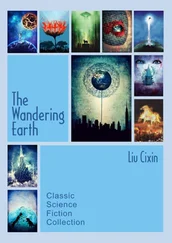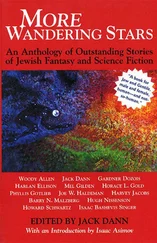W.L. Alden - 99 Classic Science-Fiction Short Stories
Здесь есть возможность читать онлайн «W.L. Alden - 99 Classic Science-Fiction Short Stories» — ознакомительный отрывок электронной книги совершенно бесплатно, а после прочтения отрывка купить полную версию. В некоторых случаях можно слушать аудио, скачать через торрент в формате fb2 и присутствует краткое содержание. ISBN: , Жанр: Языкознание, Критика, на английском языке. Описание произведения, (предисловие) а так же отзывы посетителей доступны на портале библиотеки ЛибКат.
- Название:99 Classic Science-Fiction Short Stories
- Автор:
- Жанр:
- Год:неизвестен
- ISBN:9782291063476
- Рейтинг книги:5 / 5. Голосов: 1
-
Избранное:Добавить в избранное
- Отзывы:
-
Ваша оценка:
- 100
- 1
- 2
- 3
- 4
- 5
99 Classic Science-Fiction Short Stories: краткое содержание, описание и аннотация
Предлагаем к чтению аннотацию, описание, краткое содержание или предисловие (зависит от того, что написал сам автор книги «99 Classic Science-Fiction Short Stories»). Если вы не нашли необходимую информацию о книге — напишите в комментариях, мы постараемся отыскать её.
99 Classic Science-Fiction Short Stories — читать онлайн ознакомительный отрывок
Ниже представлен текст книги, разбитый по страницам. Система сохранения места последней прочитанной страницы, позволяет с удобством читать онлайн бесплатно книгу «99 Classic Science-Fiction Short Stories», без необходимости каждый раз заново искать на чём Вы остановились. Поставьте закладку, и сможете в любой момент перейти на страницу, на которой закончили чтение.
Интервал:
Закладка:
After the customary interval, the voice replied. There was a sticky quality about it that reminded me of the sucking of mud at some object struggling in it.
"The reptiles are gone," it said. "I alone live upon this expiring world. Even the plant life has turned yellow and withered. The volcanoes are in terrific action. The mountains are becoming level, and soon all will be one vast plain. A thick, green slime is gathering upon the face of the water; so that it is difficult to tell where the land with its rotting vegetation ends and the sea begins. The sky is saffron in color, like a plate of hot brass. At night a blood red moon swims drunkenly in a black sky.
"Something is happening to gravitation. For a long time I had suspected it. Today I tested it by throwing a stone into the air. I was carried several feet above the ground by the force of my action. It took the stone nearly twenty minutes to return to earth. It fell slowly, and at an angle! "
"An angle!" cried Mortimer.
"Yes. It was barely perceptible, but it was there. The earth's movement is slowing: Days and nights have more than doubled in length."
"What is the condition of the atmosphere?"
"A trifle rarefied, but not sufficiently so to make breathing difficult. This seems strange to me."
"That," said Mortimer to me, "is because his body is here in the twentieth century, where there is plenty of air. The air at the stage of the earth's career where his mind is would be too rare to support organic life. Even now the mental influence is so strong that he believes the density of the atmosphere to be decreasing."
"Recently," Williams' voice went on, "the star Vega has taken Polaris' place as centre of the universe. Many of the old stars have disappeared, while new ones have taken their places. I have a suspicion that our solar system is either falling or traveling in a new direction through space."
"Listen to me, Williams." Mortimer's voice sounded dry and cracked, and his forehead was besprinkled with great gouts of sweat. "It is the sixth, the last day. What do you see?"
"I see a barren plain of grey rock. The world is in perpetual twilight because the mists that rise from the sea obscure the sun. Heaps of brown bones dot the plain near the mounds that once were cities. The dykes around Manhattan long ago crumbled away; but there is no longer any need for them even were men here, for the sea is rapidly drying up. The atmosphere is becoming exceedingly rarefied. I can hardly breathe. . . .
"Gravitation is giving out more rapidly. When I stand erect I sway as though drunk. Last night the curtains of mist parted for a time, and I saw the moon fly off into space.
"Great lightnings play about the earth, but there is no thunder. The silence all around is plummetless. I keep speaking aloud and striking one object against another to relieve the strain on my eardrums. . . .
"Great cracks are beginning to appear in the ground, from which smoke and molten lava issue. I have fled to Manhattan in order that the skeletons of the tall buildings may hide them from my sight.
"Small objects have begun to move of their own volition. I am afraid to walk, as each step hurls me off my balance. The heat is awful. I cannot breathe."
"There was a short interval, that came as a relief to our tightly screwed nerves. The tension to which the experiment had pitched us was terrible, yet I, for one, could no more have torn myself away than I could have passed into the fourth dimension.
Suddenly the voice cut the air like a knife!
"The buildings!" it shrieked. "They are swaying! They are leaning toward each other! They are crumbling, disintegrating; and the crumbs are flying outward instead of falling! Tiny particles are being thrown off by everything around me. Oh, the heat! There is no air!"
Followed a hideous gurgling; then:
"The earth is dissolving beneath my feet! It is the end. Creation is returning to its original atoms! Oh, my God!" There was a sickening scream that rapidly grew fainter with the effect of fading on radio.
"Williams!" shouted Mortimer. "What happened?"
There was no answer.
"Williams! Williams!" Mortimer was on his feet, fairly shrieking into the instrument. "Do you hear me?"
The only response was utter silence.
Mortimer clutched me by the arm and dragged me with him from the laboratory and down the hall.
"Is—is he dead?" I choked as we ran.
Mortimer did not answer. His breath was coming in quick, short gasps that would have made speech impossible even had he heard me.
At the door of the lead room he stopped and fumbled with his keys. From beyond we could hear no sound. Twice Mortimer, in his nervousness and hurry, dropped the key and had to grope for it; but at last he got it turned in the lock, and flung the door open.
In our haste, we collided with each other as we hurried into the room. Then as one man we stopped dead in our tracks. The room was empty!
"Where—" I began incredulously. "He couldn't have gotten out! Could he?"
"No," Mortimer answered hoarsely.
We advanced farther into the room, peering into every crack and corner. From the back of the chair, suspended by their cord, hung the earphones; while dangling from the chair's seat to the floor were the tattered and partially charred remains of what seemed to have been at one time a suit of men's clothing. At sight of these, Mortimer's face went white. In his eyes was a look of dawning comprehension and horror.
"What does it mean." I demanded.
For answer, he pointed a palsied finger.
As I looked, the first beam of morning sunlight slipped through the light above us, and fell obliquely to the floor. In its golden shaft, directly above the chair where Williams had sat, a myriad of infinitesimal atoms were dancing.
3. Ooze
Anthony Melville Rud
Ooze
In the heart of a second-growth piney-woods jungle of southern Alabama, a region sparsely settled by backwoods blacks and Cajans—that queer, half-wild people descended from Acadian exiles of the middle eighteenth century—stands a strange, enormous ruin.
Interminable trailers of Cherokee rose, white-laden during a single month of spring, have climbed the heights of its three remaining walls. Palmetto fans rise knee high above the base. A dozen scattered live oaks, now belying their nomenclature because of choking tufts of gray, Spanish moss and two-foot circlets of mistletoe parasite which have stripped bare of foliage the gnarled, knotted limbs, lean fantastic beards against the crumbling brick.
Immediately beyond, where the ground becomes soggier and lower—dropping away hopelessly into the tangle of dogwood, holly, poison sumac and pitcher plants that is Moccasin Swamp—undergrowth of ti-ti and annis has formed a protecting wall impenetrable to all save the furtive ones. Some few outcasts utilize the stinking depths of that sinister swamp, distilling “shinny” of “pure cawn” liquor for illicit trade.
Tradition states that this is the case, at least—a tradition which antedates that of the premature ruin by many decades. I believe it, for during evenings intervening between investigations of the awesome spot I often was approached as a possible customer by woodbillies who could not fathom how anyone dared venture near without plenteous fortification of liquid courage.
I know “shinny,” therefore I did not purchase it for personal consumption. A dozen times I bought a quart or two, merely to establish credit among the Cajans, pouring away the vile stuff immediately into the sodden ground. It seemed then that only through filtration and condensation of their dozens of weird tales regarding “Daid House” could I arrive at understanding of the mystery and weight of horror hanging about the place.
Читать дальшеИнтервал:
Закладка:
Похожие книги на «99 Classic Science-Fiction Short Stories»
Представляем Вашему вниманию похожие книги на «99 Classic Science-Fiction Short Stories» списком для выбора. Мы отобрали схожую по названию и смыслу литературу в надежде предоставить читателям больше вариантов отыскать новые, интересные, ещё непрочитанные произведения.
Обсуждение, отзывы о книге «99 Classic Science-Fiction Short Stories» и просто собственные мнения читателей. Оставьте ваши комментарии, напишите, что Вы думаете о произведении, его смысле или главных героях. Укажите что конкретно понравилось, а что нет, и почему Вы так считаете.












